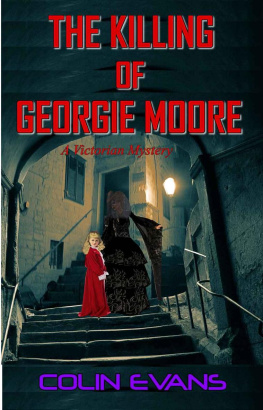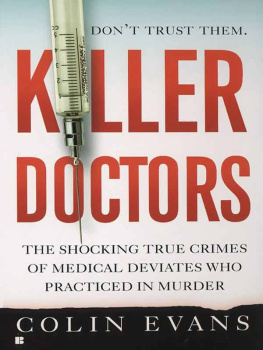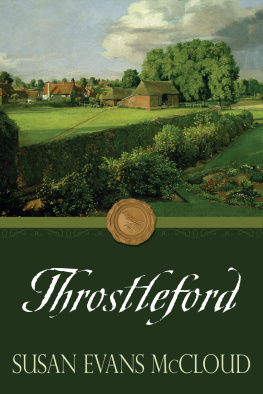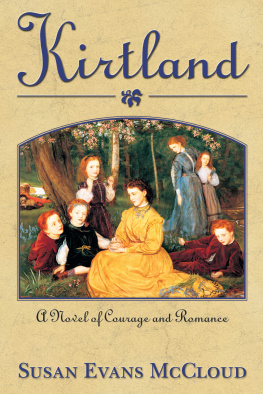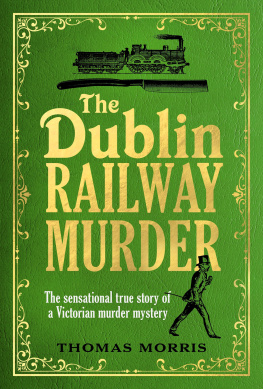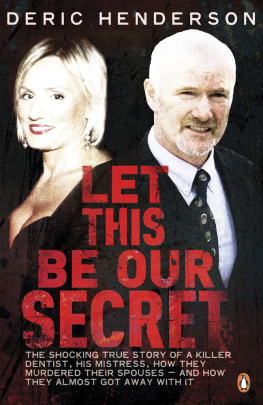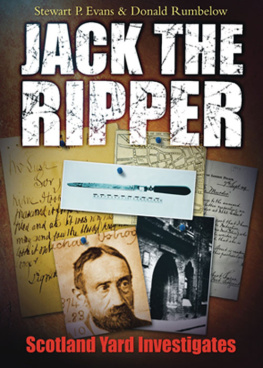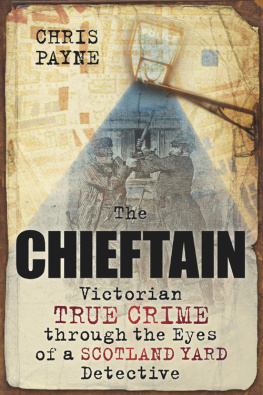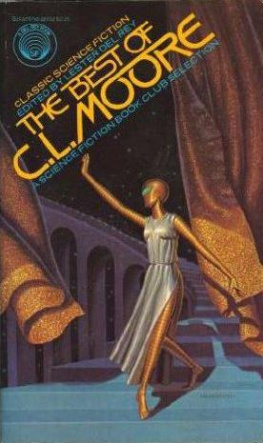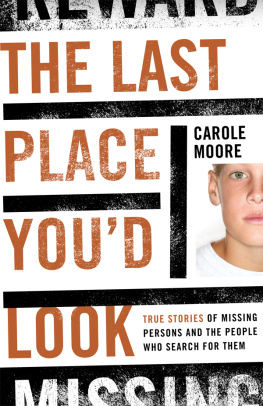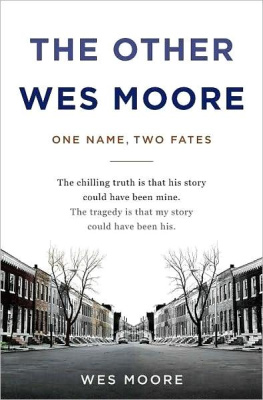THE KILLING OF GEORGIE MOORE
A True-Life Victorian Mystery
by
COLIN EVANS
Copyright Colin Evans, 2013
All rights reserved
No part of this publication may be reproduced, stored in a retrieval system, or transmitted in any form or by any means without the prior permission of the publisher
Also by Colin Evans
SLAUGHTER ON A SNOWY MORN: A Tale of Murder, Corruption and the Death Penalty case that Shocked America
BLOOD ON THE TABLE: The Greatest Cases of New York City's Office of the Chief Medical Examiner
KILLER DOCTORS: The Shocking True Crimes of Medical Deviates who Practiced in Murder
THE CASEBOOK OF FORENSIC DETECTION: How Science Solved 100 of the World's Most Baffling Crimes
THE FATHER OF FORENSICS: The Groundbreaking Cases of Sir Bernard Spilsbury and the Beginnings of Modern CSI
MURDER TWO: The Second Casebook of Forensic Detection
A QUESTION OF EVIDENCE: The Casebook of Great Forensic Controversies from Napoleon to OJ
GREAT FEUDS IN HISTORY: Ten of the Liveliest Disputes Ever
SUPERLAWYERS: 40 Top Lawyers and the Cases that Made Them Famous
PREFACE
PREFACE
Saturday, 4 February, 1882
The thickest fog of winter had crept in overnight along the Thames, worsening with every hour, until, by daybreak, visibility could be measured in feet rather than furlongs. Londoners moved about, fading in and out of view like apparitions in the damp, cold mist. People fumbled blindly around the capital's streets. Some disastrously. At eight o'clock in the morning two oarsmen, heavily muffled against the frosty chill, were propelling their skiff along the river near Hampton Court when they found their progress unexpectedly hampered. Curious, they peered over the side of their boat. Just beneath the bow a woman's body, fully clothed, bobbed slowly in the water. Her loose black hair haloed a face shocked by the suddenness of unexpected death. Judging from her appearance she had not been in the water long. The horrified scullers cagily manoeuvred the corpse to the shoreline and contacted the police. Documents in the poor woman's pockets suggested that she was a governess, while two pocket handkerchiefs and her underwear were laundry-marked with the name 'Howell.' The sad conclusion was that she had fallen into the river by mistake. She had simply not known it was there.
On the other side of the city a similar fate befell a fireman aboard the steamship Amethyst , which lay moored at the Surrey Commercial Docks. Despite having a lantern to light his path, he missed his step on the rimy gangway and plunged into the freezing water. His body was found hours later. Both he and the governess had fallen victim to one of those 'London particulars' that Dickens so relished, a fog of such opaque impenetrability that it made every step taken outdoors an exercise in treachery, particularly along the river.
By afternoon the yellowy murk had driven most of the omnibuses from the streets, as frustrated horse handlers abandoned efforts to control their terrified teams and headed for the sanctuary of their home stations. Even closed doors provided no immunity from the insidious vapour. That night, angry West End theatregoers would noisily complain that they couldn't even see the actors on stage. One theatre, the Imperial , closed altogether. But not everyone or everything was defeated by the weather.
Earlier that afternoon, at just after three o'clock, an open car and two carriages set out from 48 Winchester Street in Pimlico, the premises of Messrs Howard & Gantlett, a firm of builders' agents and auctioneers, with an occasional sideline in undertaking. Today was one of their 'sideline' days. The horse-drawn procession didn't have far to travel, just 120 yards along cobbled stones, past the gaslit, yellow-stone villas of Winchester Street, heading north from the Thames. But it was the slowest of journeys. Not just because of the fog or the horse-team's practiced funeral gait, but because the entire street was jammed with people. Crowds of mourners had spilled over from the sidewalks and onto the carriageway. Labourers who'd finished work on this Saturday midday had slaked their thirsts and fuelled their tempers in the local inns before joining the crush. A few made the sign of the cross as the cortege edged past. Others were more concerned with pulling raggedy clothes more tightly about their malnourished bodies in an effort to ward off shivers induced by the twin assaults of sub-zero temperatures and infectious mob sentiment. Rarely had this rundown district of London seen such an outpouring of egalitarian grief. Amongst the forest of doffed cloth caps an occasional silk top hat peeped through, as men of all classes showed their respect. Teary-eyed women huddled deep into long woollen cloaks and dabbed at their damp cheeks with linen handkerchiefs or whatever scrap of fabric came to hand. The anguish was palpable. So too was the anger, stoked as it had been by days of rumour and sensational newspaper coverage. Those with an instinct for such things sensed that it wouldn't take much to turn these mourners into a mob.
The mood was at its darkest outside the heavily curtained windows of number 105 Winchester Street. Here, things were turning ugly. It took some considerable effort, but the lead driver of the cortege managed to rein his skittish horses to a halt just in front of phalanx of police officers that guarded the house's porticoed entrance. Each passing second saw the crowd's jeers and catcalls grow angrier, more strident, and infinitely more threatening. Earlier that day the local constabulary had wired a "telegraphic message" to police headquarters at Scotland Yard, warning of possible trouble and requesting reinforcements. Extra uniformed officers had been drafted under the charge of two inspectors, Knight and Rowland. They had their hands full.
Pimlico was an oddly schizophrenic district. Squeezed in between Victoria Station and the Thames, to the eastwhere it abutted swanky Belgravia and the baroque insolence of WestminsterPimlico's houses were grand and well-appointed, havens for the wealthy upper-middle class and staffed by squadrons of servants. Just a few hundred yards to the west, it was an entirely different story. Here, in teeming streets darkened by the brooding hulk of Millbank Penitentiary, Supply and demand kept prices down. A few pence bought a fevered coupling in some alleyway. Deeper pockets permitted the 'comfort' of a lice-ridden bed in one of the crumbling townhouses near the prison that had been converted into brothels. Shoehorned in between the bordellos were lofty tenement houses, once proud, now decaying like rotten teeth. These were home to Pimlico's working class familiessome barely on the breadline, most well below itcrammed into one damp, unheated room, often sleeping half a dozen to a bed. Sanitation was unheard of. The only running water was that found dripping down the lodging room walls. Everyone dreamed out of getting out. Few did.
Those workers fortunate enough to find regular, well-paid employment tended to gravitate to the western reaches of Pimlico, around Winchester Street, where things picked up economically and socially. But there was little evidence today of that upward social mobility amongst the crowd outside number 105. This was raw, elemental fury at work. Beer-stained insults peppered the curtained windows as two lines of police officers linked arms, forming a corridor that afforded the sombre, frock-coated undertakers a way through the shoving mob and into the house. Moments later they emerged, bearing a tiny coffin, no more than four feet in length, draped in a black velvet pall and dressed with half a dozen immortelles. At once a dreadful hush fell upon the crowd. Every head was bared as the coffin was placed onto an open carriage. The silence was unearthly. But all that changed when the front door of 105 swung open a second time.

